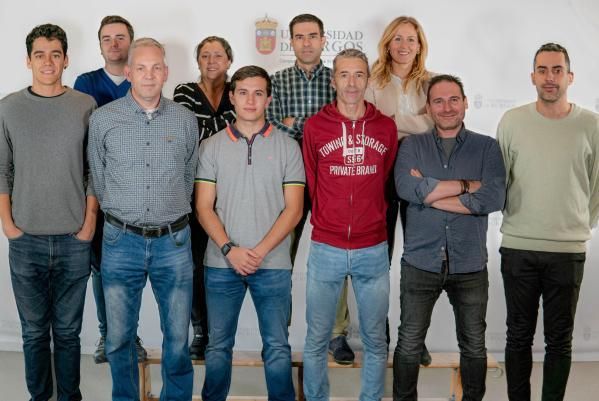
GIE
Integridad Estructural

Constituido el 09 de junio de 2004
Responsable: ISIDORO IVAN CUESTA SEGURA
Centro académico: ESCUELA POLITECNICA SUPERIOR
Departamento: INGENIERIA CIVIL
Programa de doctorado: Ingeniería y Tecnologías Industrial, Informática y Civil (UBU)
Página web: https://www.ubu.es/gie
El grupo de investigación de Integridad Estructural (GIE) de la Universidad de Burgos desarrolla su actividad en el ámbito de la evaluación y diseño estructural, especialmente, en aplicaciones del hidrógeno como vector energético. Sus líneas de actuación se pueden resumir en cuatro grandes bloques: El primero hace referencia a la investigación de hidrógeno como vector energético, analizando el comportamiento de los materiales en contacto con H2 y la fragilización de diversas aleaciones. El segundo, está enfocado a la fabricación aditiva con tecnologías FDM, SLS, SLM o Binder Jetting. Incluyendo la optimización de parámetros de impresión, la fabricación de estructuras lattice, así como tratamientos termomecánicos de postproceso para la mejora de propiedades mecánicas. El impacto del hidrógeno en la fabricación aditiva es un apartado importante de este segundo bloque. El tercer bloque abarca la caracterización de materiales y los ensayos necesarios para el estudio de fallo de componentes, la mejora del diseño y la evaluación de la integridad estructural (vida en fatiga, fractura, desgaste, corrosión…). El grupo GIE investiga el comportamiento de diferentes materiales mediante ensayos estáticos y dinámicos, ensayos de fractura y fatiga hidráulica hasta 6.000 bares, medición de tensiones residuales y análisis metalográficos y fractográficos. El último bloque de nuestras capacidades se basa en la modelización del comportamiento mecánico de los materiales bajo diferentes condiciones y cargas. Para ello se desarrollan modelos de daño y multi-físicos en diferentes códigos de elementos finitos, lo que permite establecer herramientas predictivas de fractura y fatiga, incluyendo los fenómenos de fragilización por hidrógeno.
Investigadores/as
Clasificaciones
- area-apl: INGENIERIA Y ARQUITECTURA
- grupo-caracter: 01
- area-anep: Ingeniería civil y arquitectura
Componentes en otros momentos (5)
- BRAVO DIEZ, PEDRO MIGUEL 20042019
- MORENO REVILLA, JESUS 20042018
- PRECIADO CALZADA, MONICA 20042019
- SUAREZ VIVAR, LUIS ALFREDO 20042018
- VERBEETEN, WILCO MARTINUS HENDRIKUS 20112015








